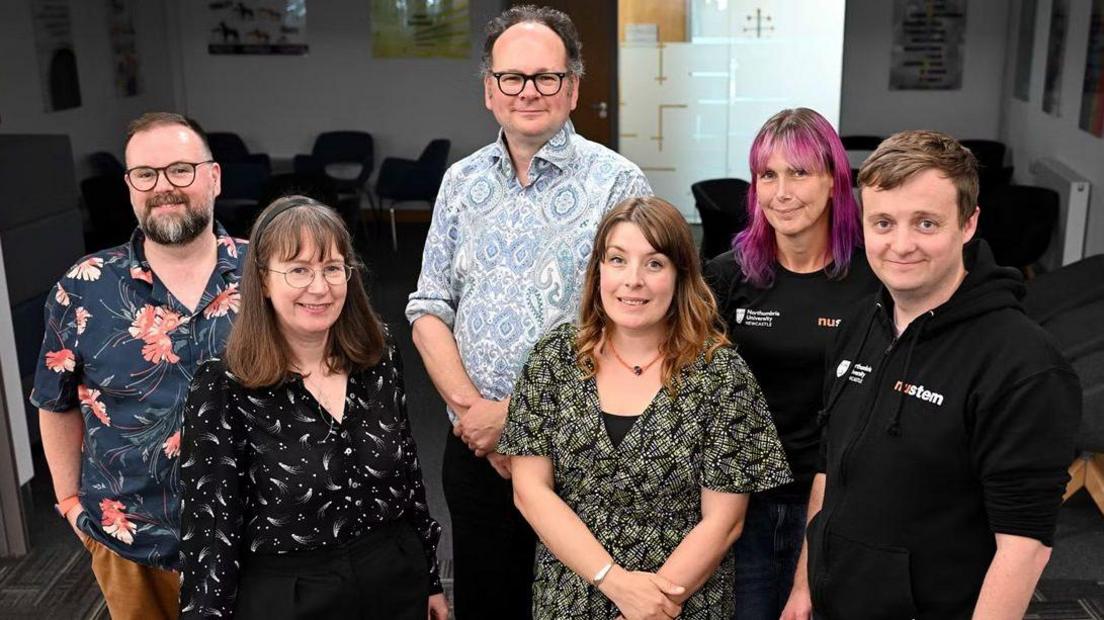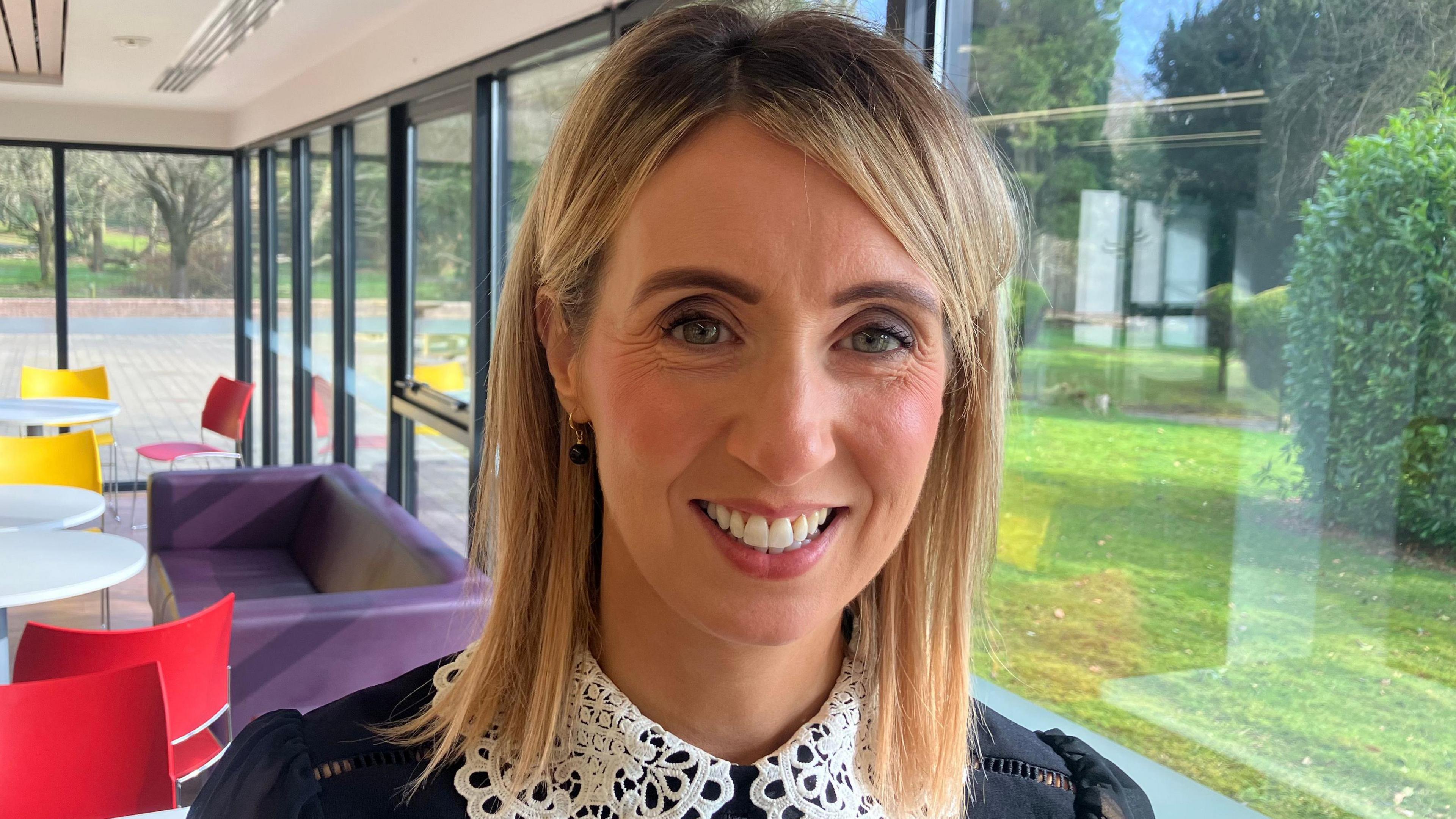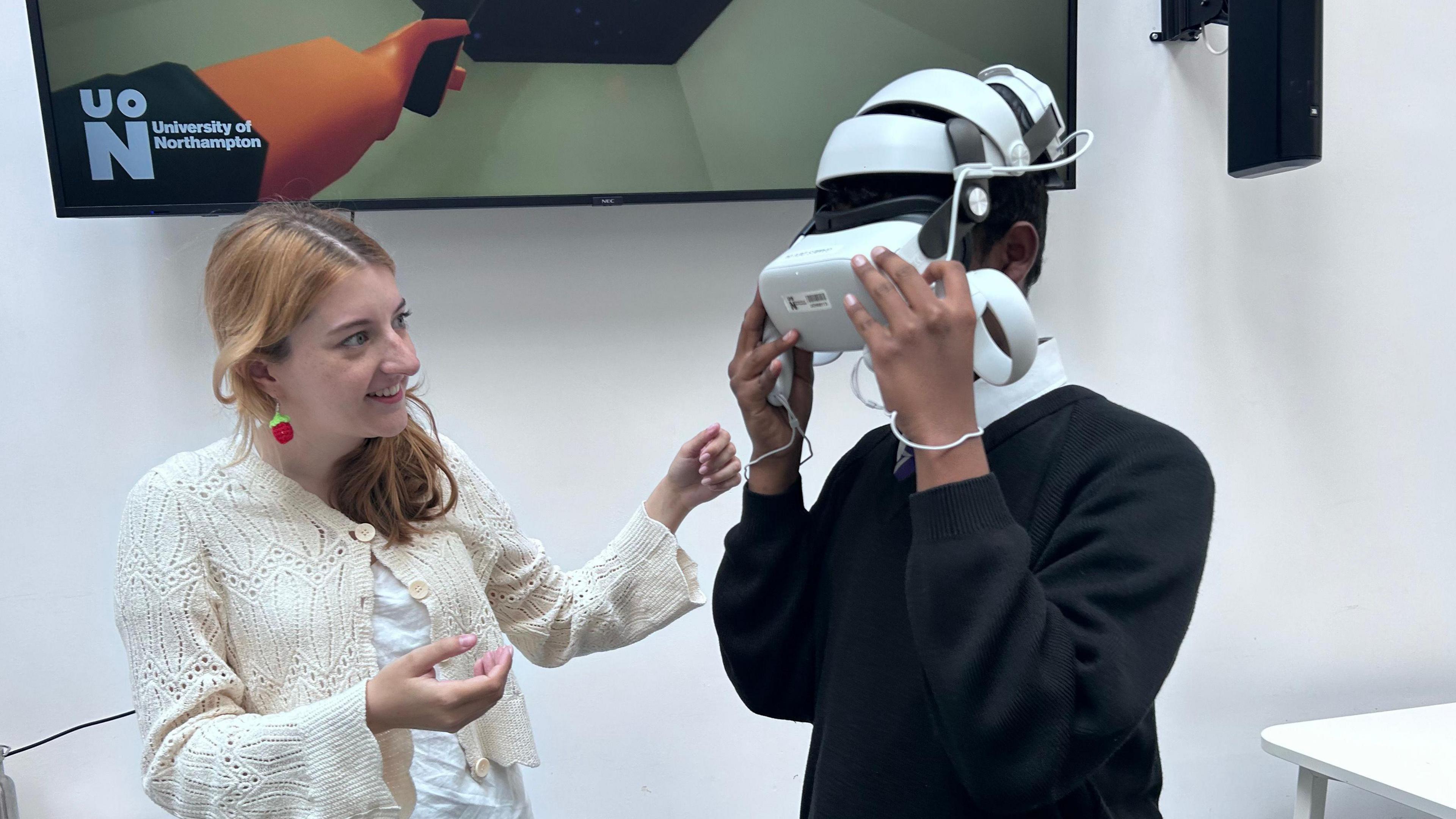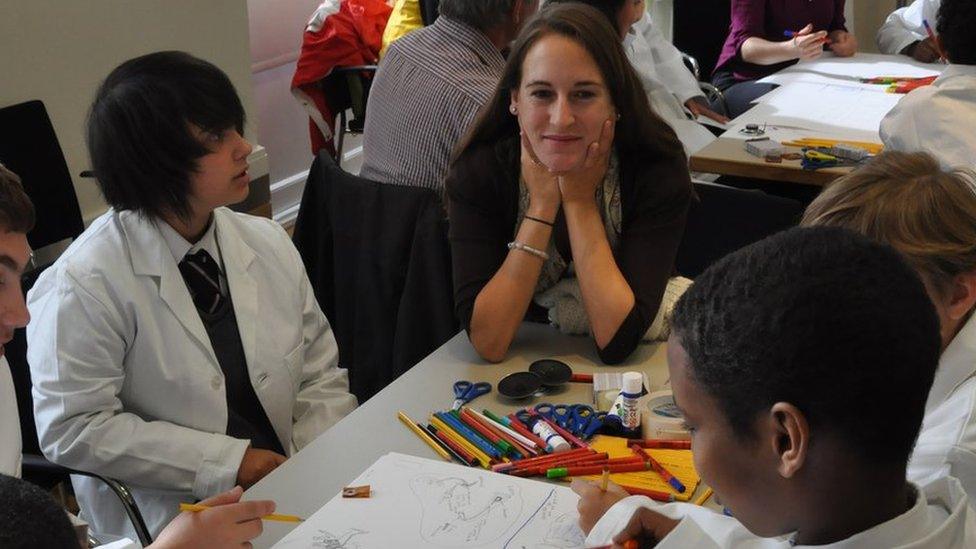Award for scheme to get children into science

Prof Carol Davenport, left, said children get ideas about careers very early
- Published
An outreach programme aimed at encouraging children to take up careers in science, technology, engineering and maths (Stem) has won an award.
Northumbria University's NUSTEM scheme for children in the north-east of England has been recognised by the Institute of Physics for its public engagement.
The programme, which has been running for 10 years, researches the best methods to pique children's interest.
Its director, Prof Carol Davenport, said children unconsciously learned about what careers could be possible for them from a very young age.
When discussing diversity in engineering, she considered what was happening in primary schools because that is "where children start to develop some of those unconscious ideas" about which jobs are an option for them, she said.
Only 16.9% of those working in engineering and technology in the UK are women, according to Engineering UK, a not-for-profit organisation working to encourage young people to choose such careers.
'Close to home'
Prof Davenport said, for many children, particularly those in the North East, it was important they knew they did not necessarily have to leave the region to pursue Stem careers.
"Part of the thing we do with schools is to encourage them to think about the local labour market so that children and young people recognise that they can get a good job in Stem that will allow them to stay close to home," she said.
For particularly young children, those aged three to five, the team have also developed free resources that help teachers highlight the types of personality traits linked to Stem careers.
"Sometimes there might not be somebody that looks like you in a career but, if you share the same characteristics, if you're curious like they are - that is kind of a point of identification," she said.
Making these interventions earlier then gives children a "strong base" to build on when they actually have to make decisions about which subjects to study and what to pursue, she said.
Follow BBC North East on X, external, Facebook, external, Nextdoor and Instagram, external.
Get in touch
Do you have a story suggestion for BBC North East & Cumbria?
Related topics
- Published19 March

- Published12 June

- Published10 March

- Published31 March 2017
